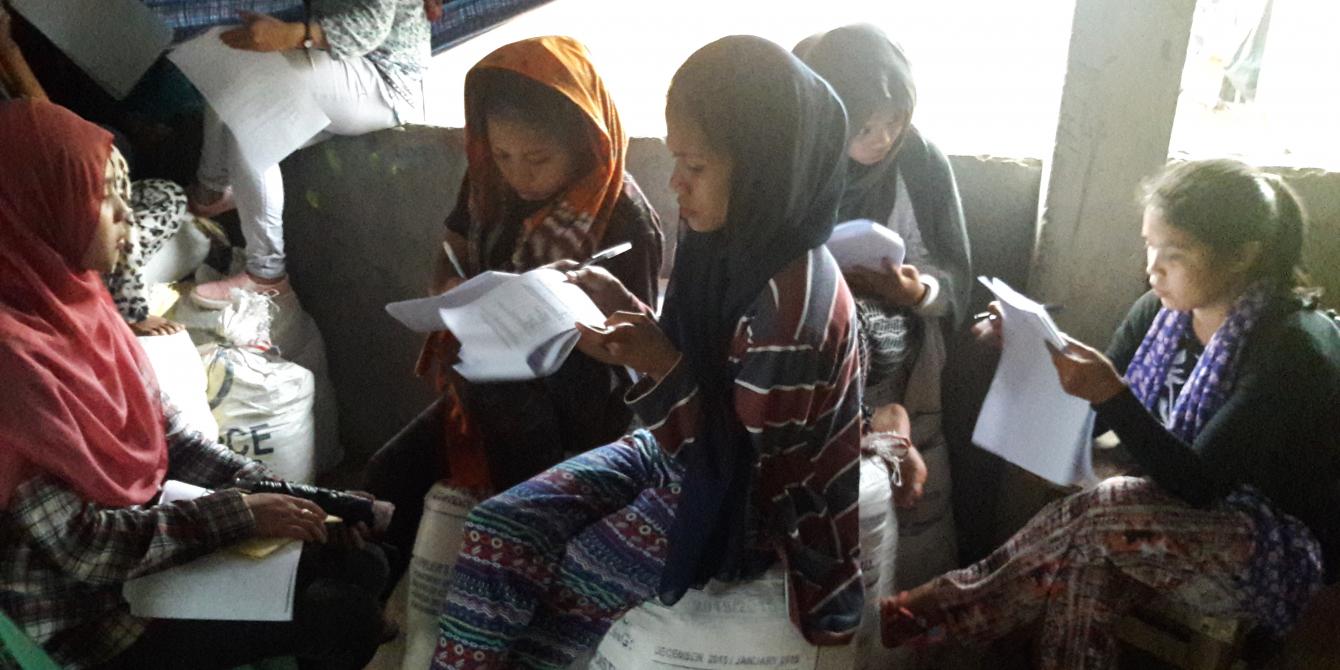
Teenage mothers express their requests for more support to improve their situation in the evacuation centers
Hoping in the "tent city" of dreams
On her second month of staying at the "tent city", the evacuation center in Landa Pamana, Balo-I, Lanao del Norte that are made of tents from the DSWD, Noranya* laments the drudgery of everyday life brought by the discomfort of the conditions.
"I'm tired of eating sardines. My babies don't have diapers and there's no boiling pot so I can't even have hot water," she said. "This is not healthy, this is not the life that I wanted," said the mother of two toddlers aged two and eight months.
Noranya is only 17. When she fled Marawi City two days after insurgents seized the city's central district and engaged responding government troops in a firefight that continues until today, she only had the clothes on her back, a backpack of a few pieces of babies' clothes, some cash and biscuits.
After ending up in the DSWD tent, which she shares with Maraya*, another young mother with a five-year-old son, everything sank in: she had to live as an evacuee who is dependent on relief from government and private groups in the months to come.
But on August 8, 2017, when Oxfam and its partner IDEALS conducted focus group discussions that asked the evacuees about their situation and wishes, Noranya saw a chance to dream.
From a guided questionnaire, she expressed her frustrations and the prolonged stay at the evacuation site. She also shared her hopes of one day going back to Marawi and watching her children crawl on their play pen again. But she knows that for now, this is an uncertainty.
"But having someone ask me about what I want and assuring me that it will be addressed is more than helpful," she said.
Recently, she said social workers have assured them of better rice supply and some breakfast cereals. There were diapers too from private individuals. There was also promise of dining and cooking items such as plates and pots. The pavement, which becomes muddy when it rains, will be poured with gravel in the next few days. Children can have better play areas by then.
Noranya's "tent housemate" Maraya, also 17, is more like her sister. "I don’t have siblings and I'm an orphan," she said. "It feels good when you share things, no matter how scarce they are, to someone who also doesn’t have anything." Maraya is a single mother whose relatives are in other towns in Mindanao.
The two young mothers and their children spend idle hours talking about how things may turn out well in the next days. Maraya said, "We dream every single day, of things getting better and nicer." Noranya has her own version of it. "If today, I receive a better rice meal that I dreamed about, I'm thankful. This would mean that tomorrow, I can have a different dream."
*Real names are withheld for protection.

 Follow us on Facebook
Follow us on Facebook Instagram
Instagram Follow us on Twitter
Follow us on Twitter LinkedIn
LinkedIn